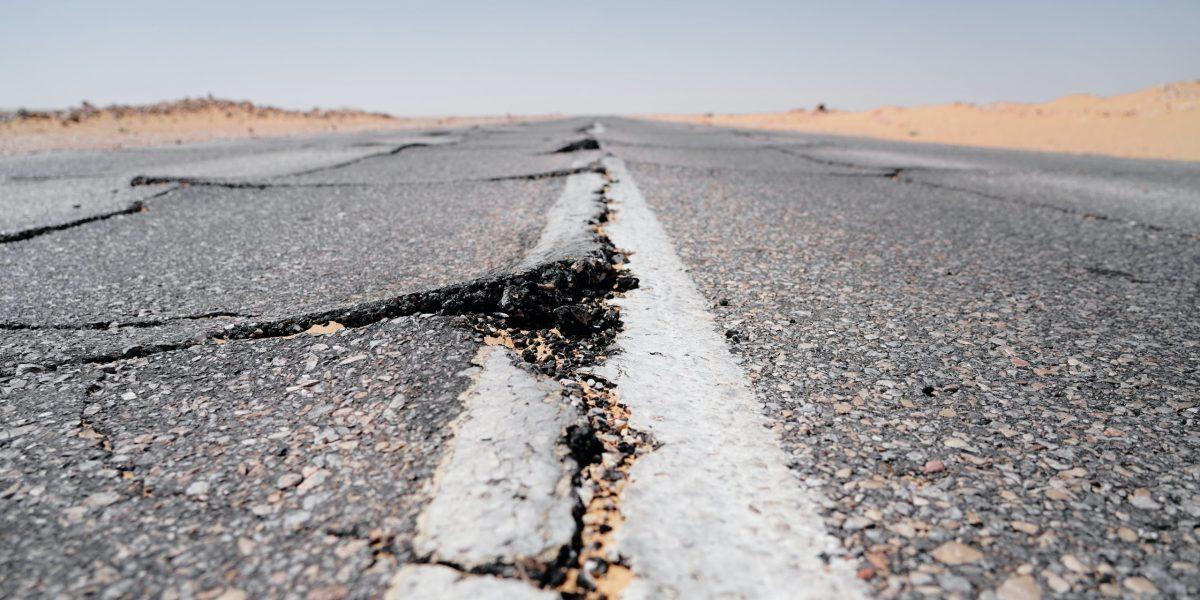At 4:17 a.m. on Feb. 6, Central and Southern Anatolia in Turkey and the Northern region of Syria were hit by violent earthquakes. Millions of lives were destroyed in an instant. Three fault lines shifted, and hours later there was a second earthquake, almost as violent as the first, something almost unheard of since earthquake recordings began. This was the unimaginable—the ultimate destruction and catastrophe had happened in the Levant region. . People were condemned to suffer from the moment it happened.
The 10 Turkish provinces affected by the earthquakes were not only made more vulnerable by sheer unpredictability and lack of preparedness, but also because they are among the country’s poorer regions. The majority of the residents are either Syrian refugees, escaping from war, or Kurds—the largest stateless minorities in the world, who have been neglected and targeted by the Turkish government for decades. The Northern Syrian regions had already been dealing with a decade-long civil war. Cities such as Aleppo, where there are still military operations ongoing, were hit the hardest . . The sanctions imposed on Syria by Western nations only worsened the catastrophe as no international aid has been allowed into the already war-torn country. For days the survivors in these regions were condemned to destruction, suffering, and desperation. The current condition is not a consequence of just the earthquakes, but the lack of any semblance of care, help or empathy from the so-called governments of Turkey and Syria. Both governments have failed their people for very different reasons. Turkey is a country located on many major fault lines. A deadly 1999 earthquake in Izmit, near the metropolitan city of Istanbul, claimed the lives of more than 18,000 people. The people, and more importantly the government, promised: never again. Yet here we are, with every aspect of disaster relief worse than it was in 1999. As it stands the death toll from Turkey and Syria combined is more than 40,000 people, but this is definitely an underestimation and is expected to reach a much higher number.
There have been cries for aid on Twitter by people who have no one to call after the rest of their families were killed, children begging to be rescued through messages posted by civilians, surviving family members on the ground begging for someone to help. These cries have continued for hours, for days, through the freezing cold, into the abyss …how can there be no help when someone broadcasts their exact location to the world, begging to be rescued? How can there be first responders just waiting on standby? How can aid be distributed so abysmally, leaving people who survived the earthquakes to die due to hunger or cold? How can any government official listen to the cries of their people and not use their power to save lives?
As with many instances in recent Turkish history, the authoritarian regime of Erdogan once again has blood on its hands. Every aspect of the government is controlled by Erdogan. This is what happens under authoritarianism when the chain of command leads back to the one man. He has the power to command anything and everything. Even when the world sends a helping hand, and the entire country comes together to gather aid. No one can get past him and help their brother and sisters. Erdogan has AFAD —Disaster and Emergency Management Presidency, established in 2009 to become the sole responsible organization in the event of a disaster— under his grip. But how can one man command all relief efforts and coordinate everything?
Erdogan doesn’t see the people in the country as people anymore, just as pawns to give him votes, power, a palace and many other unimaginable luxuries. That’s why, in the face of growing criticism, he had no qualms about shutting down Twitter in Turkey completely. He cut the one lifeline people had, the one chance they had at being saved. Gone in an instant. For his own ego. He rejected the help of StarLink to assist with internet and cellular communication, stating the Turkish ones were just as capable when people couldn’t even make calls to save their lives. He had no problem rejecting aid from countries like Cyprus to further his political agenda when there are still thousands of screams echoing under the rubble.
This is a massacre. The government is massacring its own people. Beyond not having the capacity to coordinate any aid efforts, they are cutting access to resources that save lives. They are condemning people to death. One man can do this: one man is powerful enough to end the lives of thousands with his decisions. People in affected regions cried out, “Where is the government?” as they perform the burials of their loved ones on their own. It’s more than “Where is the government?” it’s “Why is the government killing us?”
The West has condemned Syria to the same fate. Why are Syrians not being sent aid? Why is the world watching as people in Syria are dying? If the world watches after a natural catastrophe that shakes the earth to its core, and the world does nothing, what are the people there to do? How can humans live in such neglect? If humanity means “human beings collectively [or as a collective],” we no longer have the dignity to say we have humanity. There is no collective. There is no humanity. One country condemned by its own government to death, swatting away helping hands; the other condemned by the West to death, not even being considered for any relief.
But the people on the ground are different. The ones with the biggest hearts, the ones that move rubble with their bare hands, the ones that struggle with their entire being to make their voices heard, the ones working as a collective to save a single life … what do they have besides their humanity?




